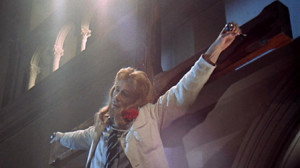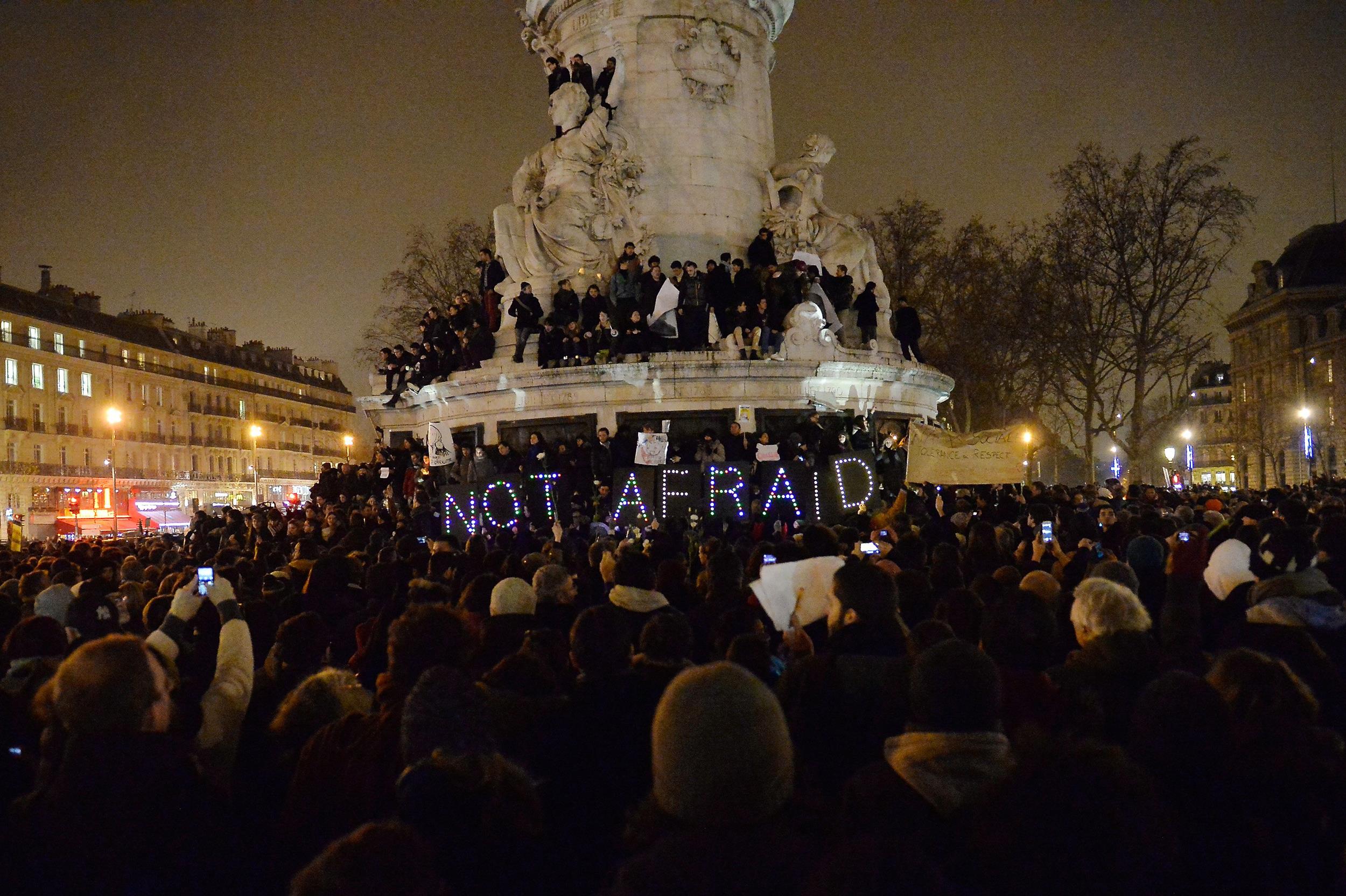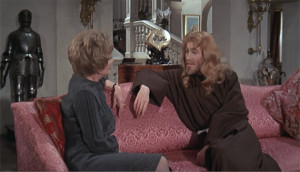“I have no choice but to be optimistic,” a friend of mine remarked to me the other day; and I get it. But I ‘m not so sanguine about our prospects on this front, the challenge to free speech and truly unfettered creative expression in an environment hemmed in by many ‘checks,’ including that of outright violence. No—I don’t’ live as if I were afraid; but I’m not unaware of a deep level of denial underlying my daily modus operandi. Writing mostly about the arts, the art world and larger cultural domains surrounding the art, music and media avant-gardes—a domain abstracted or removed by various degrees from the everyday world and its frequently harsh realities—I am, myself, abstracted and insulated by degrees from those actualities, including the sheer ignorance that enshrouds its world view. I’m also operating in a domain that privileges extreme, outlier/outsider expression of every kind.
The irony is that religion may encompass some of the most ‘outsider’ and ‘outlier’ expression ever created. I understand why religion exists and can appreciate passages of religious literature, what is embraced by some as sacred scripture, whether in the King James Bible, the Quran or the Bhagavad Gita, and certainly Greek and Roman pagan mythology, as some of the greatest works of creative imagination ever made. I understand how these were connected imaginatively to what were once apprehended as supernatural phenomena and what atheists like me believe were simply unexplained physical or celestial phenomena; how they came to be woven into the fabric of early societies and the earliest forms of governance. I’m also one of those who, having embraced the ever-expanding body of science, mathematics and philosophy and its capacities to explain the physical universe, to rationalize, refine and humanize systems of law government—to, in a sense, explain humanity to itself—have left those belief-sets behind. I accept their ceremonial function, their durable symbolic power; but there is nothing left for me to ‘worship,’ per se; its sacerdotal power has been rendered, in a sense, obsolete.
I understand why people cling to those symbols—and continue to believe in that sacerdotal power. I don’t know about ‘millennials,’ but how different, after all, is it from those of us of a certain generation who cling to our totems and amulets, our ‘lucky’ jewels, charms and mantras; who ‘touch wood,’ and are ready to characterize everything from intellectual and aesthetic epiphanies to drug-induced catatonic states as ‘religious experience’? I wouldn’t describe my own ecstatic or epiphanal experiences as particularly religious; but I get the connection. (J. S. Bach’s music may be the equivalent of sacred scripture for some of us; but the god he worshipped with some fervor was the Christian one.)
Is nothing sacred? That’s the thing: in the domain of art and music that for all practical purposes forms the ‘religious’ center of my world, nothing is. Not Mozart or Beethoven, not Hendrix or Stravinsky, not Pärt, Poulenc or Penderecki; not Homer, Dante, Shakespeare, Blake, Joyce or Proust (worship them as we might). Which is not the same thing as saying we have free speech—legally or otherwise. (Sometimes it’s hard to say just how ‘free’ speech is even in the art world.) We may believe in the idea of perfectly free speech; we may even codify it into law; but ideas and laws are equally subject to interpretation—to put it liberally. I already discussed some of the subtle and not-so-subtle checks on speech and expression in my last post. But there is a more fundamental conflict built right into the U.S. Constitution’s First Amendment that sharply distinguishes secular France from the not-so-secular United States.
There’s a reason why rabid politicians of all political stripes like to break out Franklin Roosevelt’s ‘Four Freedoms’ doctrine. It promises everything idealists and extremists alike want to hear. Amongst the obvious linkages between the four ‘freedoms,’ there’s also a conflict—though First Amendment absolutists might not think so. Freedom of worship is subsumed within the First Amendment’s free speech protections. But there’s a fundamental conflict in that religion, organized or free-form solo, is not always similarly tolerant of free speech or expression that offends or abrades some aspect of its doctrinal principle or liturgical practice. Sometimes it happens in the same religion.
Once upon a time, I considered myself one of those First Amendment absolutists, but decided a few decades ago that freedom of religion was considerably overrated. I’ve sometimes thought that freedom from want would go a long way towards smoothing a few of the ‘rough edges’ in the kind of fundamentalist fervor that takes the poorest boys from a life of peonage to madrasas to jihad; but the history of Christianity’s internecine wars and persecutions is not exactly promising in this regard. 
No one should be surprised by the ferocity of this violence. Violence and barbarism are embedded in most religions. Fundamentalism implies violence no matter what the religion. What is shocking is the degree of cultural alienation and disconnect, that although cultivated and inflamed overseas, first took shape on French soil—in the banlieues of Paris. No—in order to have true freedom of speech and freedom from fear both, we need to have freedom from worship—or at the very least, controls on its distribution.
I realize this is virtually meaningless in the internet age. But certainly we could shift our view of the norms, by drawing a firmer line against those who attempt to drag their religious doctrines, their so-called ‘morals,’ mystical beliefs and superstition in every guise into public discussions of any kind. In this religion-shackled ‘one nation under (siege by) God,’ the entire campaign against abortion rights amounts to nothing less than a religious war. I can’t imagine going to France or Italy without visiting its churches, nor Istanbul without visiting its mosques. A world without the Beethoven Missa Solemnis (as I was reminded vividly today) would be a far poorer one. If the domains of the sacred have their ‘holiest of holies’ (whether we consider that St. Peter’s in Rome or Carnegie Hall in New York), surely the profane deserves its own protected domains, its unholiest of unholies.
It’s nice, inspiring, to say I’m ‘not afraid,’ to stand in solidarity at a moment of historic social or political confrontation. But the reality of physical and emotional trauma is hard to deny; and we remain very vulnerable. Churches and houses of worship were once sanctuary to almost anyone who asked for it. (The God-fearing KKK disabused us of this notion here in the U.S.) We need places of sanctuary for the rest of us.



